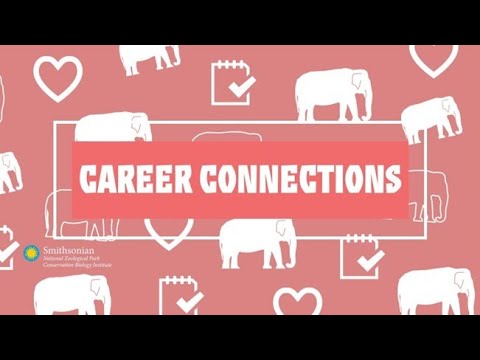- Understanding the Role of a Population Ecologist in Wildlife Conservation
- Key Skills and Qualifications for Aspiring Population Ecologists
- Impact of Population Ecology Research on Zoology and Zoo Management
- Synergy Between Population Ecologists and Conservation Programs
- Challenges and Opportunities in the Field of Population Ecology
Population ecologists play a crucial role in wildlife conservation by studying species populations, their dynamics, and interactions with their environment. This line of work is fundamental in managing and conserving biodiversity, as it helps understand how different species thrive or decline, offering insights into their management in both natural habitats and controlled environments. The work of population ecologists forms the backbone of informed decision-making in conservation strategies, often guiding policy development and resource allocation in conservation projects. This article aims to delve into the roles, responsibilities, and impact of population ecologists within the field of zoology and zoo management, illustrating their indispensable contribution to wildlife conservation.
Understanding the Role of a Population Ecologist in Wildlife Conservation
Population ecologists are scientists dedicated to studying the dynamics of species populations. They focus on variables such as population size, density, structure, and interactions among species. This research is essential in understanding the factors that lead to population changes, whether due to natural environmental shifts, human activities, or interactions between species. These professionals analyze extensive datasets to model population trends and predict future changes, which is pivotal in devising conservation strategies.
Population ecologists often collaborate with other scientists, policymakers, and conservationists to implement measures aimed at preserving species and their habitats. For instance, their work can identify critical keystone species whose decline might severely impact ecosystem stability. Moreover, population ecologists frequently engage with local communities to promote sustainable practices, emphasizing the significance of wildlife conservation for ecological and human well-being.
Key Skills and Qualifications for Aspiring Population Ecologists
Becoming a population ecologist requires a solid academic foundation typically anchored in biology, ecology, or a closely related field. Advanced knowledge in statistical analysis, Geographic Information Systems (GIS), and computer modeling is crucial, given the quantitative nature of population studies. Aspiring ecologists often pursue advanced degrees, such as a master’s or Ph.D., focusing on population ecology or related branches.
Soft skills, including communication and teamwork, are equally vital. Population ecologists must effectively convey scientific findings to non-scientific audiences, including policymakers, conservationists, and the general public. Critical thinking and problem-solving abilities are crucial as ecologists often face unpredictable challenges when conducting fieldwork or analyzing data.
Impact of Population Ecology Research on Zoology and Zoo Management
Population ecology research significantly influences zoology and zoo management practices. In the context of zoos, population ecologists contribute to maintaining genetic diversity and preventing inbreeding, ensuring the long-term viability of captive populations. Effective breeding programs in zoos rely heavily on understanding population dynamics, encouraging genetic diversity, and reducing the risk of inherited health problems.
In zoology, population ecology provides a comprehensive understanding of species interactions, community dynamics, and ecological processes. This knowledge facilitates the development of intervention strategies to manage predators, control overabundant species, and mitigate the effects of invasive species. Moreover, population ecologists provide data that supports habitat restoration projects, improving conditions for both wildlife and plant communities.
Synergy Between Population Ecologists and Conservation Programs
The collaboration between population ecologists and conservation programs fosters the development of more effective conservation strategies. By providing vital population data, ecologists help prioritize conservation actions, such as habitat protection, species reintroduction, and community education initiatives. Conservation programs leverage this information to focus resources on critical areas, enhancing the impact of their efforts.
Population ecologists often serve on advisory panels for government and non-governmental organizations, shaping policies that influence local, national, and international conservation efforts. This synergy enhances the implementation of scientifically informed measures, ensuring protection and management efforts are targeted and efficient. Together, these collaborative efforts help safeguard ecosystems, promote biodiversity, and foster sustainable interactions between human activities and natural environments.
Challenges and Opportunities in the Field of Population Ecology
Despite its importance, the field of population ecology faces numerous challenges. Climate change, habitat loss, and human disturbances pose significant threats to wildlife populations, complicating conservation efforts. Population ecologists work tirelessly to adapt methodologies and models to predict and mitigate these impacts effectively.
Technological advancements present new opportunities for innovation in population ecology. Remote sensing, bioinformatics, and advanced statistical models have revolutionized data collection and analysis, offering more precise and extensive insights into population dynamics. These innovations provide opportunities to refine management practices and enhance conservation efficacy.
The future of population ecology hinges on continuous research, multidisciplinary collaboration, and the integration of cutting-edge technologies. As the demand for sustainable development and biodiversity conservation increases, the role of population ecologists becomes ever more vital, with their research informing practices that protect our planet’s ecological heritage. By fostering a deeper understanding of population dynamics and their implications, population ecologists remain at the forefront of efforts to achieve ecological balance and sustainability in changing environments.
*****
Source Description
Meet Kate Rodriguez-Clark, a Population Ecologist who helps protect endangered species in zoos and aquariums. As part of her “unZOOsual” career, Kate uses data to help make decisions about conserving animal populations in human care and in the wild.
After watching, explore more videos, resources, and upcoming programs here: https://nationalzoo.si.edu/education/school-programs


